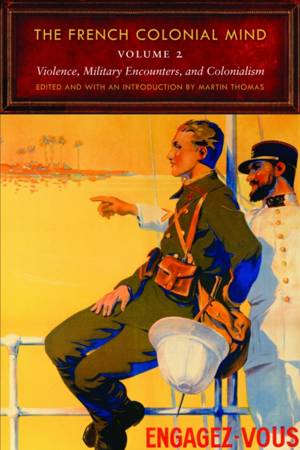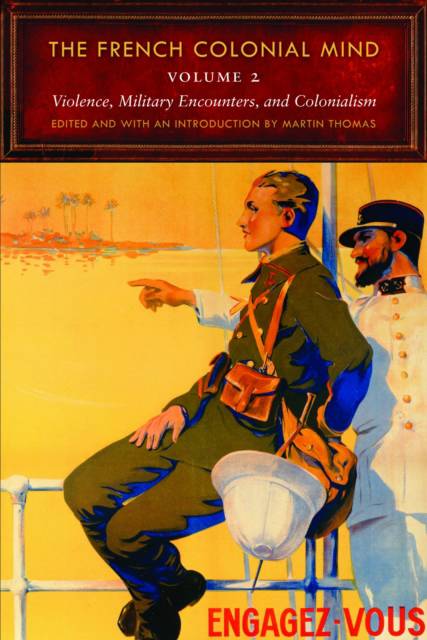
Bedankt voor het vertrouwen het afgelopen jaar! Om jou te bedanken bieden we GRATIS verzending (in België) aan op alles gedurende de hele maand januari.
- Afhalen na 1 uur in een winkel met voorraad
- In januari gratis thuislevering in België
- Ruim aanbod met 7 miljoen producten
Bedankt voor het vertrouwen het afgelopen jaar! Om jou te bedanken bieden we GRATIS verzending (in België) aan op alles gedurende de hele maand januari.
- Afhalen na 1 uur in een winkel met voorraad
- In januari gratis thuislevering in België
- Ruim aanbod met 7 miljoen producten
Zoeken
The French Colonial Mind, Volume 2
Violence, Military Encounters, and Colonialism
€ 68,95
+ 137 punten
Omschrijving
Violence was prominent in France's conquest of a colonial empire, and the use of force was integral to its control and regulation of colonial territories. What, if anything, made such violence distinctly colonial? And how did its practitioners justify or explain it? These are issues at the heart of The French Colonial Mind: Violence, Military Encounters, and Colonialism. The second of two linked volumes, this book brings together prominent scholars of French colonial history to explore the many ways in which brutality and killing became central to the French experience and management of empire.
Sometimes concealed or denied, at other times highly publicized and even celebrated, French violence was so widespread that it was in some ways constitutive of colonial identity. Yet such violence was also destructive: destabilizing for its practitioners and lethal or otherwise devastating for its victims. The manifestations of violence in the minds and actions of imperialists are investigated here in essays that move from the conquest of Algeria in the 1830s to the disintegration of France's empire after World War II. The authors engage a broad spectrum of topics, ranging from the violence of first colonial encounters to conflicts of decolonization. Each considers not only the forms and extent of colonial violence but also its dire effects on perpetrators and victims. Together, their essays provide the clearest picture yet of the workings of violence in French imperialist thought.
Sometimes concealed or denied, at other times highly publicized and even celebrated, French violence was so widespread that it was in some ways constitutive of colonial identity. Yet such violence was also destructive: destabilizing for its practitioners and lethal or otherwise devastating for its victims. The manifestations of violence in the minds and actions of imperialists are investigated here in essays that move from the conquest of Algeria in the 1830s to the disintegration of France's empire after World War II. The authors engage a broad spectrum of topics, ranging from the violence of first colonial encounters to conflicts of decolonization. Each considers not only the forms and extent of colonial violence but also its dire effects on perpetrators and victims. Together, their essays provide the clearest picture yet of the workings of violence in French imperialist thought.
Specificaties
Betrokkenen
- Uitgeverij:
Inhoud
- Aantal bladzijden:
- 440
- Taal:
- Engels
- Reeks:
Eigenschappen
- Productcode (EAN):
- 9780803220942
- Verschijningsdatum:
- 1/01/2012
- Uitvoering:
- Paperback
- Formaat:
- Trade paperback (VS)
- Afmetingen:
- 152 mm x 226 mm
- Gewicht:
- 616 g

Alleen bij Standaard Boekhandel
+ 137 punten op je klantenkaart van Standaard Boekhandel
Beoordelingen
We publiceren alleen reviews die voldoen aan de voorwaarden voor reviews. Bekijk onze voorwaarden voor reviews.








